Why Is Social Media An Important Part Of Inbound Marketing?
Social media isn’t just a playground for cat videos and vacation selfies. It’s a powerful engine for inbound marketing, a digital megaphone that amplifies your brand voice, attracts engaged audiences, and fuels business growth. But why is it such a crucial ingredient in the inbound marketing recipe?
Let’s crack the code and unlock seven reasons why is social media an important part of inbound marketing. So, ditch the hashtags for a moment and dive with us into the dynamic world of social media marketing – where conversations turn into connections, and connections turn into conversions.
What Is Social Media?

Social media encompasses online platforms and websites for people to create, share, and exchange information, ideas, and content. Users connect globally, fostering relationships and communities based on shared interests, activities, or backgrounds. Popular platforms include Facebook, Instagram, Twitter, LinkedIn, TikTok, and Snapchat, offering features like posting updates, sharing photos and videos, messaging, networking, and more.
These platforms transform communication, enabling rapid information dissemination, facilitating businesses, activism, entertainment, and influencing societal trends. Social media’s dynamic nature continuously shapes how people communicate, collaborate, and consume content in the digital age.
What Is Inbound Marketing?

Inbound marketing is a strategic approach that focuses on attracting, engaging, and delighting potential customers through valuable and relevant content. Unlike traditional marketing, which interrupts consumers with advertisements, inbound marketing aims to create a connection by providing information and solutions tailored to the audience’s needs.
It involves techniques such as content creation, search engine optimization (SEO), social media marketing, and email campaigns to draw prospects to a brand organically. By offering helpful content and building relationships, inbound marketing aims to convert visitors into customers and customers into advocates, fostering long-term loyalty.
This customer-centric methodology aligns with the modern consumer’s preference for personalized and informative interactions, creating a more authentic and effective marketing approach.
Inbound Marketing: Does Social Media Play A Role?

Absolutely, social media plays a pivotal role in inbound marketing. For organic marketing to thrive, social media is essential as it enables businesses to connect with customers, fostering a community of brand enthusiasts. It serves as a dynamic platform for initiating conversations where both the brand and the audience actively participate. This two-way communication is crucial in today’s consumer-centric landscape, where customers seek engagement and authenticity.
Social media platforms facilitate content sharing, engagement, and relationship-building, allowing businesses to share valuable information and listen to customer feedback. By leveraging social media’s interactive nature, businesses can create a loyal following, enhance brand visibility, and establish meaningful connections that contribute significantly to the success of an inbound marketing strategy.
Inbound Marketing And Social Media: What’s The Connection?

Inbound marketing and social media are intricately connected as they share a common objective: attracting and engaging the right audience to promote a business’s products or services. Inbound marketing centers around the idea of drawing in potential clients rather than pursuing them aggressively. It emphasizes showcasing a company’s unique qualities, capturing the interest of prospective customers, and converting them into leads.
Social media plays a pivotal role in this process. Social media marketers leverage various platforms to promote a business and its offerings. By precisely targeting the correct audience with tailored content, social media facilitates optimal exposure and interaction. Unlike traditional outbound marketing, social media fosters bidirectional communication, replacing one-way communication channels such as email and advertisements.
The landscape of social media has evolved, and smart brands now engage their audience in meaningful conversations through compelling content. This shift from conventional approaches to interactive engagement aligns with the principles of inbound marketing, where building relationships and providing value are paramount.
While search engine traffic remains crucial, relying solely on it is insufficient to achieve inbound marketing objectives. Social media expands the reach and impact, enabling businesses to connect directly with their audience, understand their needs, and cultivate a community of loyal customers—a key component in the holistic strategy of inbound marketing.
Why Is Social Media An Important Part Of Inbound Marketing?

1. Brand Building With Every Post & Share:
Social media serves as a powerful platform for continuous brand building. Each post and share contributes to shaping your brand’s identity and perception. Consistent and strategic content creation establishes a cohesive brand image, reinforcing key messages and values. Engaging posts showcase your brand’s personality, fostering a connection with the audience. Sharing relevant and valuable content positions your brand as an industry authority, enhancing credibility.
Over time, this cumulative effect strengthens brand recognition and loyalty, influencing potential customers positively. Through the ongoing process of posting and sharing, social media becomes a dynamic tool for sculpting and reinforcing your brand’s presence in the minds of your target audience.
2. Direct Connection With Target Audience
Social media provides a direct and immediate channel for connecting with your target audience. By engaging in conversations, responding to comments, and participating in discussions, you can establish a personal and authentic connection. This direct interaction allows you to understand better your audience’s preferences, concerns, and feedback.
Tailoring your content based on these insights creates a more meaningful and relevant experience, enhancing the overall relationship with your target demographic. This direct line of communication fosters trust, loyalty, and a sense of community, making social media a vital tool in building and nurturing relationships with the specific audience you aim to reach.
3. Valuable Content Fuels Leads & Engagement:
Creating and sharing valuable content on social media is a key driver for attracting leads and fostering engagement. Informative and relevant posts capture the attention of your audience, positioning your brand as a knowledgeable resource.
By consistently delivering content that addresses their needs and interests, you establish credibility and trust. This, in turn, encourages audience members to become leads by exploring your products or services. The sharing of valuable content initiates two-way communication, inviting comments, shares, and discussions that contribute to community building and long-term engagement.
4. SEO Boost From Social Signals & Authority:
Social media plays a crucial role in enhancing your website’s search engine optimization (SEO) through social signals and authority. Search engines consider social signals—such as likes, shares, and comments—as indicators of content relevance and popularity.
A robust social media presence contributes to a positive online reputation, establishing your brand as an authoritative voice in your industry. As search engines increasingly factor in social signals when ranking content, a strong social media presence not only drives direct traffic but also indirectly boosts your website’s visibility and ranking on search engine results pages (SERPs). This synergy between social media and SEO reinforces your online presence and helps potential customers discover your brand.
5. Real-Time Feedback To Shape Strategy:
One of the paramount benefits of incorporating social media into your inbound marketing strategy is the ability to receive real-time feedback. Social media platforms offer an immediate and direct channel for interaction with your audience. Through comments, messages, and reactions, you gain valuable insights into customer opinions, preferences, and sentiments.
This timely feedback empowers your business to adapt and refine marketing strategies swiftly. By staying attuned to audience responses, you can optimize content, address concerns, and align your offerings with the evolving needs of your target demographic. The dynamic nature of social media transforms it into a live feedback loop, shaping your strategy in real time for enhanced effectiveness.
6. Community Platform For Loyalty & Advocacy:
Social media serves as a vibrant community platform, fostering loyalty and advocacy among your audience. By creating a space where followers can connect, share experiences, and express their affinity for your brand, social media builds a sense of community. This community not only strengthens existing customer relationships but also serves as a powerful catalyst for brand advocacy.
Loyal customers, when engaged on social platforms, become brand ambassadors, willingly sharing their positive experiences and recommendations. This organic, word-of-mouth promotion is a potent force in attracting new customers. The community-driven nature of social media transforms it into a dynamic hub where relationships flourish, turning satisfied customers into dedicated advocates.
7. Budget-Friendly Reach Beyond Traditional Ads:
Social media presents a cost-effective alternative for reaching and engaging a vast audience compared to traditional advertising channels. While traditional ads often incur significant expenses, social media platforms offer budget-friendly options, including targeted advertising and sponsored content.
The ability to precisely define and reach your target demographic within a specified budget is a key advantage. Social media’s vast user base provides unparalleled access to diverse audiences, enabling small and large businesses alike to extend their reach without breaking the bank.
Additionally, the potential for organic reach through compelling content further maximizes cost efficiency, making social media an indispensable tool for businesses aiming to achieve broad visibility within financial constraints. This budget-friendly approach democratizes marketing, allowing brands of all sizes to compete on a global scale and amplifying the impact of their inbound strategies.
How To Set Inbound Marketing Strategy For Social Media?

Here are seven comprehensive steps to guide you through the process:
1. Define Your Objectives:
Begin by clearly defining your inbound marketing objectives for social media. What do you aim to achieve? Whether it’s increasing brand awareness, driving website traffic, generating leads, or fostering customer loyalty, having specific, measurable goals will guide your strategy. Consider the unique aspects of your business and align your social media objectives with your overall marketing and business goals.
2. Understand Your Target Audience:
Inbound marketing revolves around catering to the needs and preferences of your target audience. Conduct thorough research to understand the demographics, behaviors, and interests of your ideal customers. This insight will inform your content strategy, allowing you to create and share content that resonates with your audience. Use analytics tools on social media platforms to gather data on your current followers and adjust your approach accordingly.
3. Choose the Right Social Media Platforms:
Not all social media platforms are created equal, and your target audience may be more active on specific platforms. Conduct a social media audit to identify where your audience spends their time. Focus your efforts on platforms that align with your brand and where your audience is most engaged. For example, visual-centric businesses may find success on Instagram, while professional services might prioritize LinkedIn.
4. Develop Compelling Content:
Content is the backbone of any inbound marketing strategy. Create content that adds value to your audience’s lives, solves their problems, or entertains them. This could include blog posts, infographics, videos, or interactive content. Strive for a balance between promotional and informative content to maintain audience interest. Consistency is key, so establish a content calendar to plan and schedule your posts across different social media channels.
5. Foster Engagement and Interaction:
Social media is inherently social, and successful inbound marketing relies on building relationships. Encourage engagement by responding promptly to comments, messages, and mentions. Pose questions, run polls, and create contests to stimulate interaction. Actively participate in relevant conversations within your industry or niche. By fostering a sense of community, you create an environment where your audience feels heard, valued, and connected to your brand.
6. Implement Data Analytics:
Data-driven insights are essential for refining and optimizing your inbound marketing strategy. Leverage analytics tools provided by social media platforms to track the performance of your content. Monitor metrics such as reach, engagement, click-through rates, and conversion rates. Analyzing this data will help you identify what resonates with your audience, allowing you to tweak your strategy for continuous improvement. Regularly review your analytics to stay informed about the effectiveness of your social media efforts.
7. Iterate and Adapt:
The digital landscape is constantly evolving, and your inbound marketing strategy should be flexible enough to adapt to changes. Regularly assess your results against your objectives and be willing to iterate on your approach. Stay updated on industry trends, algorithm changes, and emerging platforms. Incorporate lessons learned from your analytics and audience feedback into your strategy. By remaining agile and responsive, your social media inbound marketing strategy will evolve to meet the needs of your audience better and align with your business goals.
FAQs
How Does Social Media Contribute To Inbound Marketing Strategies?
Social media serves as a dynamic platform for audience engagement and community building, allowing businesses to connect directly with their target audience and foster authentic relationships.
Can Social Media Really Influence Brand Building In Inbound Marketing?
Absolutely. Through consistent and strategic content sharing, social media aids in brand building by shaping and reinforcing positive brand identity, leading to increased recognition and loyalty.
Is Social Media A Cost-Effective Means To Reach A Broader Audience?
Yes, social media provides a budget-friendly alternative to traditional advertising. Targeted advertising options and organic reach through compelling content enable businesses to extend their reach effectively.
How Does Real-Time Feedback On Social Media Impact Marketing Strategy?
Real-time feedback on social media is invaluable as it allows businesses to adapt and refine marketing strategies swiftly. It provides insights into customer opinions, preferences, and sentiments, shaping strategies in real time for enhanced effectiveness.
Can Social Media Platforms Be Considered Community Hubs For Brand Loyalty?
Indeed, social media platforms serve as vibrant community hubs, fostering loyalty and advocacy. By creating a space for followers to connect, share experiences, and express affinity, businesses build a sense of community that strengthens relationships and turns customers into advocates.
How Does Social Media Contribute To Seo Through Social Signals And Authority?
Social media positively influences SEO by contributing to social signals—likes, shares, and comments—which search engines consider as indicators of content relevance and popularity. It also establishes your brand as an authoritative voice in your industry.
Why Is It Essential To Understand The Target Audience For Social Media Inbound Marketing?
Understanding the target audience is crucial as it informs content strategy, ensuring that businesses create and share content that resonates with their audience. This personalized approach enhances engagement and fosters a stronger connection with the target demographic.
What Is The Most Imperative Part Of Marketing On Social Media Platforms?
The most imperative part of marketing on social media platforms is precision in targeting a specific demographic with tailored content. Utilizing audience personas becomes paramount unless one possesses an intuitive understanding of the intended readers. By honing in on the characteristics, preferences, and behaviors of the target audience, social media marketing can be crafted to resonate authentically, driving engagement and fostering a meaningful connection. This precision ensures that each post aligns with the audience’s interests, needs, and preferences, ultimately maximizing the impact of the marketing strategy in the dynamic and competitive realm of social media.

















































